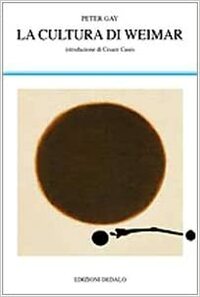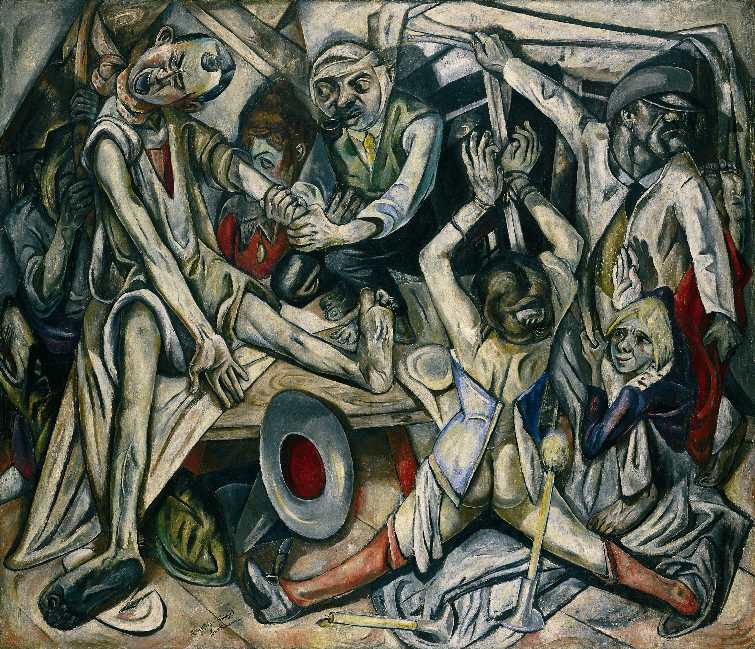You need to sign in or sign up before continuing.
Take a photo of a barcode or cover
“Eternally chained to a single small fragment of the whole, man forms himself only as a fragment.”- Schiller
informative
fast-paced
informative
sad
medium-paced
Interesting and readable, lots of dates but a compelling narrative around them too. Sad time to read it, lots of it feels familiar (UK 2024).
Moderate: Racism, Antisemitism, Murder
Doesn't touch on the darkest parts of the Nazi reign in triggering detail
Splendid short book that reviews the major themes of the cultural effervescence of the Weimar years, highlighting the ways in which it intersected with Weimar's politics. More introductory than exhaustive.
Interesting take on the Weimar Republic through some aspects of the culture at the time (the Bauhaus, Mann's Zauberberg, Rilke's poetry etc.).
A decent and short introduction, but so surface level I wish I‘d read something longer. Also the author has a weird vendetta against the movie Metropolis which he thinks is dull and immoral.
ya know we love a book thats both strange and boring.
ya know we love a book thats both strange and boring.
Excellent introduction to and overview of Weimar Germany, specifically the socio-political aspects of the era, but what did Fritz Lang ever do to Peter Gay?!
My copy of Peter Gay's Weimar Culture was given to me by my father when I was in high school. I read it at the time, but it was perhaps a little more scholarly and dense than what I was looking for at that time. I read it again in college and then I appreciated the fact that it although it is quite scholarly there are times in the book when it is quite imaginative and gripping, unlike many historical tracts I had to read for coursework. I read it again this time after encountering a quote from Mr. Gay in Alex Ross's The Rest is Noise which I am still reading. I was happy to read the book again and it reminded me of aspects of Weimar culture that I had forgotten, or missed the first time around. Well worth rereading.
challenging
informative
reflective
slow-paced
This book is incredible in its ability to capture every different dynamic and perspective seen in the years of Weimar Germany. I think to appreciate the nuances that it gets into, it does require a bit more familiarity with the period than even the "Short History" section that the tail end of the book supplies (though it does provide a fairly impressive summary that condenses a lot of important information into just a few pages.) Gay is able to incorporate commentary, direct quotes from leading culture practitioners of the time period, and examine the general trends that played out in an incredibly unified fashion for a time that was in many ways characterised by its disarray and the obscurity faced by the general population.
Perhaps what Gay's book contributes most is a variety of incredibly appropriate sources that you would never otherwise encounter, even if having taken in the past a course that focused on 20th century Germany (which I did in university). It was undeniably rich in terms of content from leading historians, literary practitioners, and other creatives from the time period while also examining sources that would likely be a bit more challenging to come across today.
My main gripe was the fact that the references and examples were much more historian and political/economic theory-heavy than I would've liked it to be - I personally would've enjoyed more discussion about the progression of the fine arts over this time period (sculpture, painting, theatre, etc), which I had assumed would be much more present in the book based on the novel's cover and the blurb I read when I initially purchased it. While such topics were present, they were referenced more in passing rather than being explored in the depth and detail I would've appreciated to see.
Nevertheless, I think that the framing of Gay's analysis of Weimar culture was executed well. While the language and general semantics could be a bit more elaborate than I felt was necessary at times (perhaps reflective of the time in which it was written), its content was largely accessible in terms of how Gay explicitly defined his central thesis in the into and kept referencing it with direct phrasing (namely "outsider" and "insider") that appeared all throughout the book. It kept the analysis unified without being simplistic, and I felt was really able to get at the complexity and shifting nature of Weimar that remains so characteristic of the political period and the culture within it.
Perhaps what Gay's book contributes most is a variety of incredibly appropriate sources that you would never otherwise encounter, even if having taken in the past a course that focused on 20th century Germany (which I did in university). It was undeniably rich in terms of content from leading historians, literary practitioners, and other creatives from the time period while also examining sources that would likely be a bit more challenging to come across today.
My main gripe was the fact that the references and examples were much more historian and political/economic theory-heavy than I would've liked it to be - I personally would've enjoyed more discussion about the progression of the fine arts over this time period (sculpture, painting, theatre, etc), which I had assumed would be much more present in the book based on the novel's cover and the blurb I read when I initially purchased it. While such topics were present, they were referenced more in passing rather than being explored in the depth and detail I would've appreciated to see.
Nevertheless, I think that the framing of Gay's analysis of Weimar culture was executed well. While the language and general semantics could be a bit more elaborate than I felt was necessary at times (perhaps reflective of the time in which it was written), its content was largely accessible in terms of how Gay explicitly defined his central thesis in the into and kept referencing it with direct phrasing (namely "outsider" and "insider") that appeared all throughout the book. It kept the analysis unified without being simplistic, and I felt was really able to get at the complexity and shifting nature of Weimar that remains so characteristic of the political period and the culture within it.




